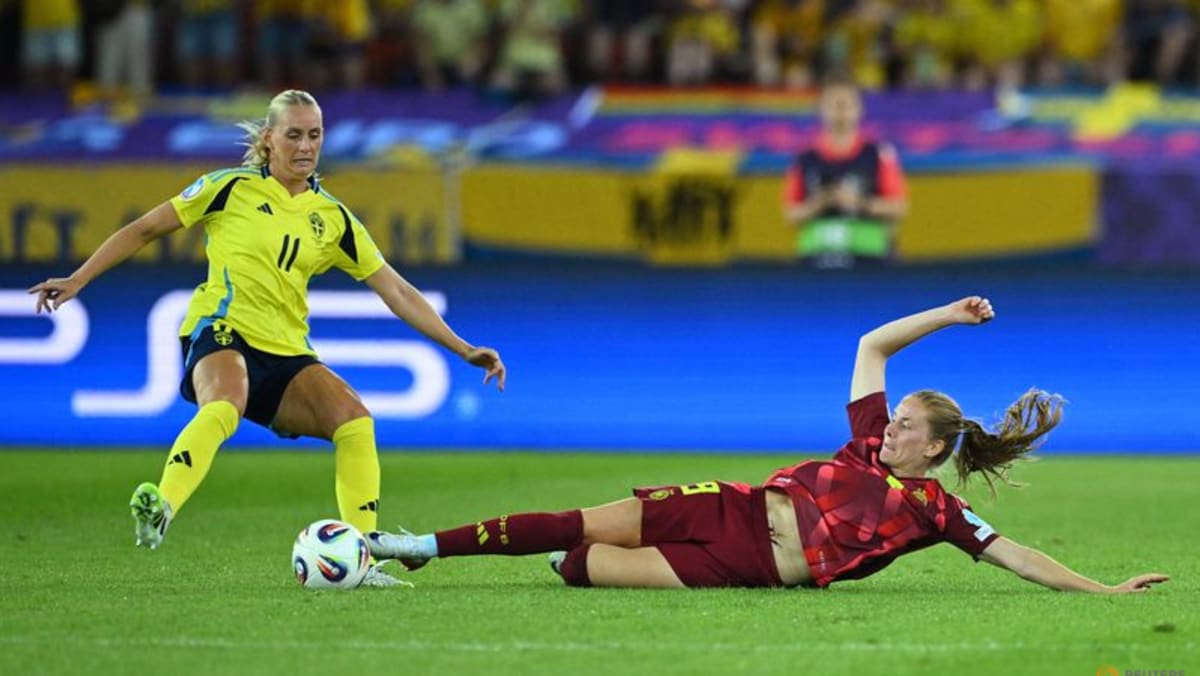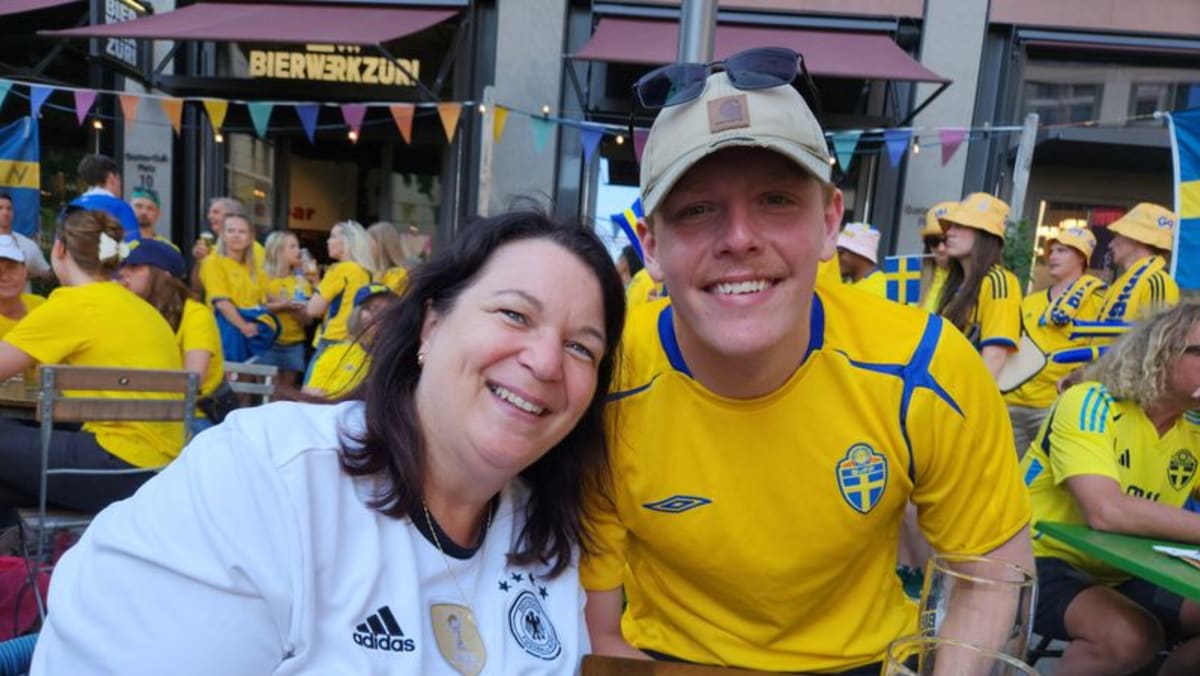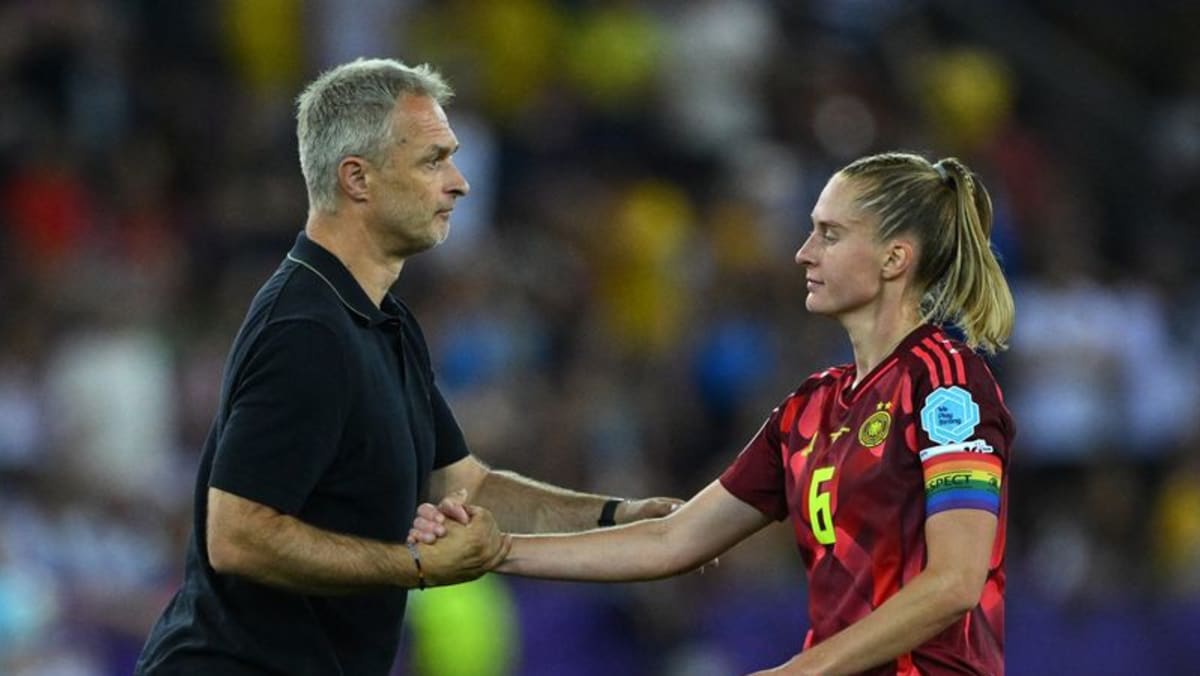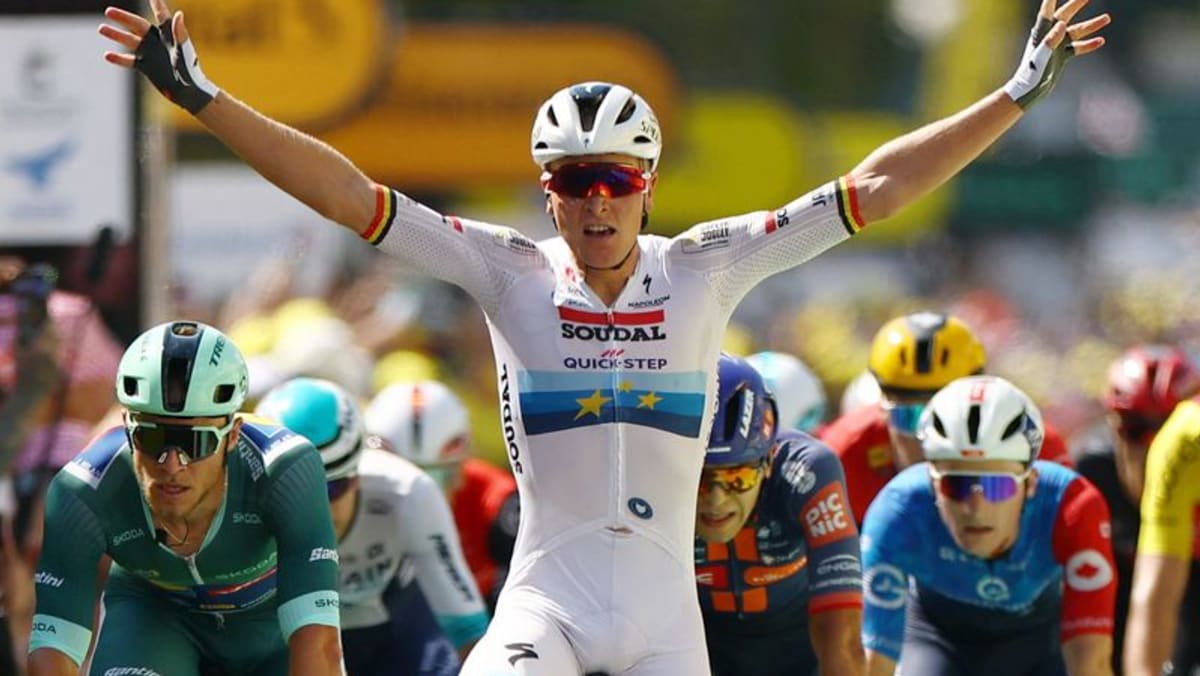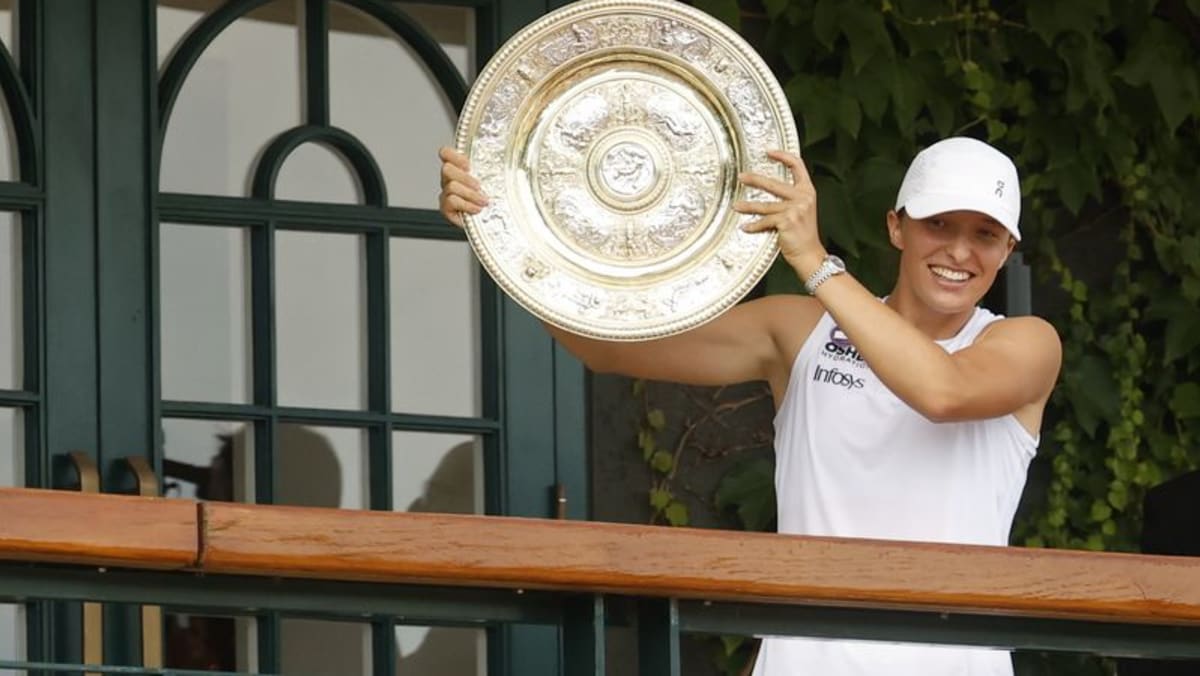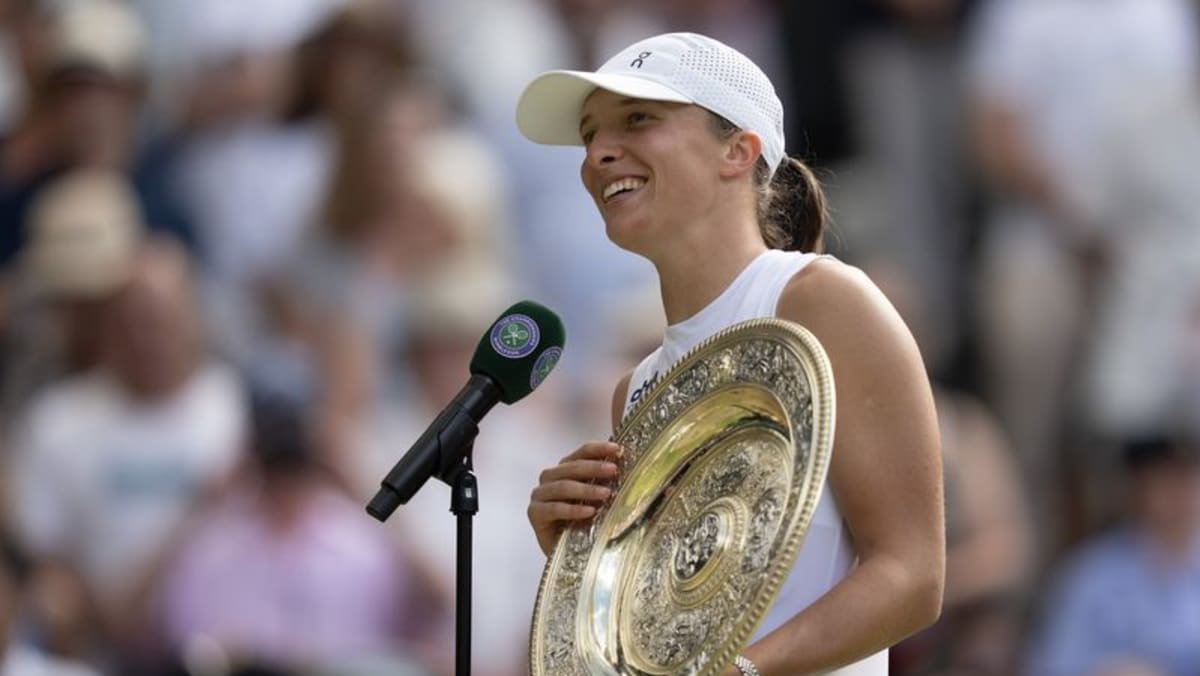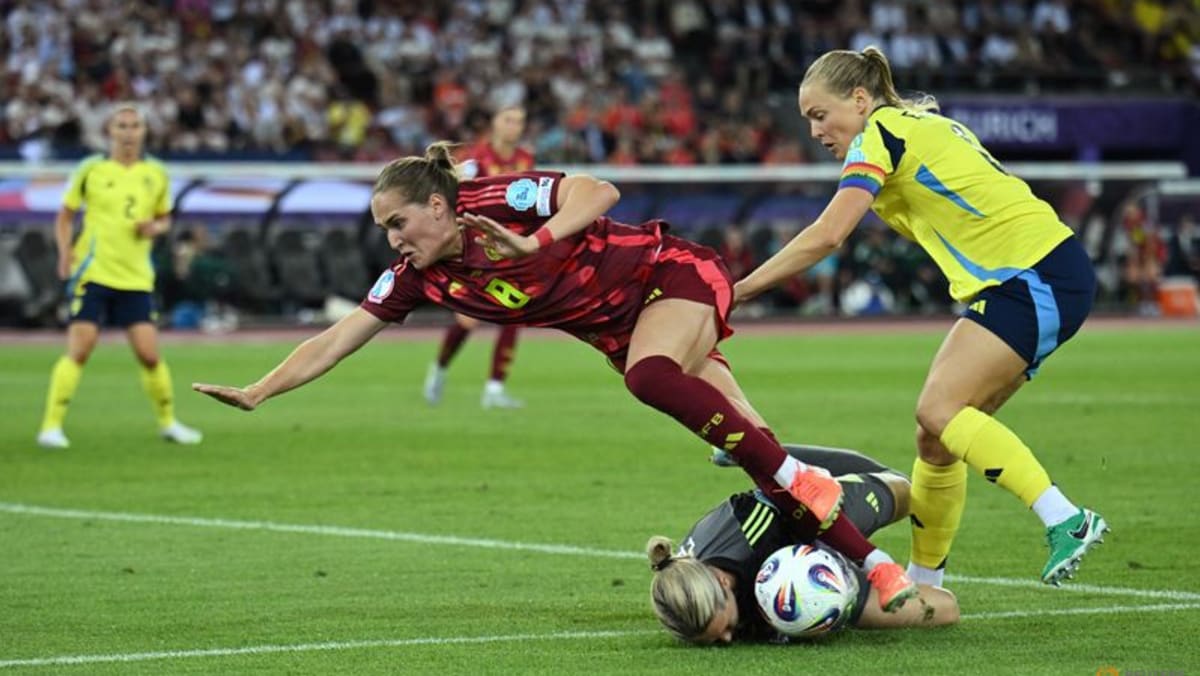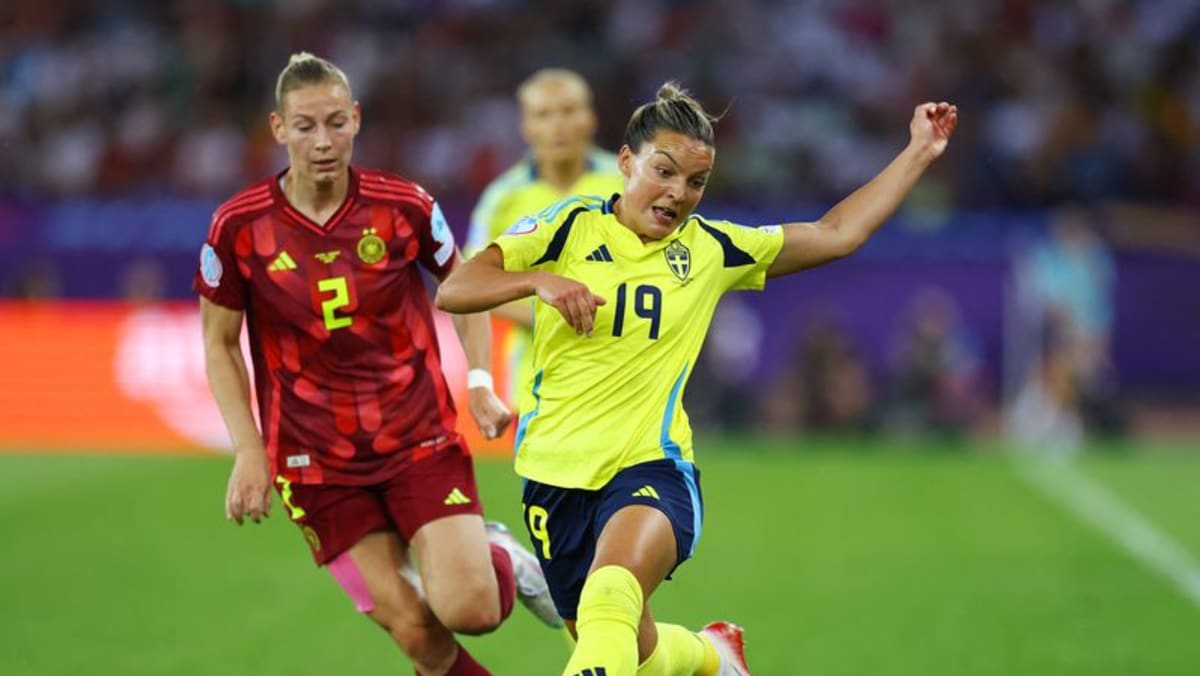ZURICH :Cold beer flowed from taps on a hot afternoon while German and Swedish fans sang tribal songs ahead of their final Women’s Euros group game in Zurich on Saturday, but there was no sign of the kind of alcohol-fuelled violence that has besmirched so many major men’s championships.
At the fan zone on the city’s Europaplatz, Swedish fans outside one bar burst into song, roaring “Stand up, we are gold and blue!” while their white-clad German counterparts stood and raised their glasses in salute.
The two sides meet to decide the top two places in Group C on Saturday at the city’s Stadion Letzigrund, and before the game they mingled freely, with only a discreet police presence keeping an eye on the two sets of fans.
“I think there’s a lot more hospitality in women’s football,” Swedish fan Oscar Berg said in a packed downtown beer garden where he was sitting with German fan Karin Schoch, who had travelled to Zurich from her home near Stuttgart earlier in the day.
“I think we both enjoy the game, and even though we’re only meeting each other today, I think we can both agree on our love for football, and we can discuss it in a fun way,” Berg said.
“The atmosphere is not like this (at men’s football in Germany), it’s different – it’s okay, but it’s great here, this is better,” Schoch said.
Alongside the Swedish and German colours, there were shirts from Switzerland, Finland, Iceland and Brazil in evidence, as well as a host of international clubs. German fans at the tournament have produced special commemorative badges for each game that they are selling for charity.
The fan culture of women’s football has long been different from the men’s game, and though there are worries that the increasing popularity of the women’s game might begin to attract more aggressive elements, German fan Natalie Galvowsky said the only difference she noticed so far was in numbers.
FILLING STADIUMS
“I’ve been following the German team since 2019, the amount of supporters is a lot different. When we look back to 2019, I think there were 10,000 people in the stadium in Germany, and today we can fill really, really big stadiums, like 44,000 people,” she told Reuters.
“On the men’s side, you can’t do it like this,” she said, indicating the fans mingling behind her. “Here, Sweden and Germany are together, celebrating together, sitting next to each other, and I think when you’re going to the men’s matches, you don’t have this atmosphere.”
A few metres away, Sweden’s “Soft Hooligans” fan group was preparing for its march to the stadium, with adults and children having their faces painted and drummers adjusting their equipment for a long night of musical support ahead.
“I think that’s the first time at the Euros where the other team had the majority here at the fan zone. In St. Gallen and Basel there were more Germans than the others,” Galvowsky said.
“It’s really peaceful, and I think it’s good to see how we are sitting together … we talked with them, so yeah, really friendly.”
Even though spirits were higher than the soaring temperature as kick-off approached, the day passed off without incident.
“No arrests, and everyone was in a good mood and looking forward to the match,” the Zurich city police told Reuters.

